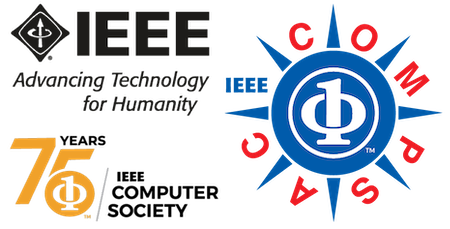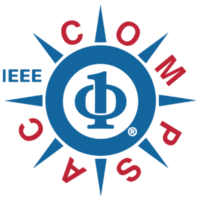The 4th IEEE International Workshop on Secure Digital Identity Management (SDIM 2021)
Call for Papers
Secure digital identity management, required by cloud services, federated services, or newest distributed and decentralized technologies such as blockchain and distributed ledger technologies, is receiving increasing attention from both service providers’ and end users’ perspectives, in terms of protection of enterprise assets and customers’ privacy in the cloud, respectively. This workshop solicits contributions describing state-of-the-art methodology and technology innovations in the field of secure identity management, encourages experience sharing (both positive and negative ones), and also welcomes work-in-progress ideas towards future concepts.
The workshop is dedicated to the security and privacy aspects of identity management (IDM) in smart devices, the cloud, or blockchain and distributed ledger environment. Topics are articulated around several important themes as “concept design”, “enabling technologies”, “federated identities”, “decentralized identities” and “applications”. It is expected they will attract both theoretical and empirical works from the IDM society, the cloud computing society, and the decentralized identity management society.
Any submission whose content is relevant to the area of secure identity management will be considered, but any submission whose subject matter is related to one of the following topics will be particularly welcome. Practically-oriented approaches will also be appreciated.
- Identity-based access control and personal data management
- Data provenance
- Identity attributes processing and analysis in a protected domain
- Service-oriented architecture for IDM in cloud
- Identity federations & trust fabrics
- Cryptographic methods for IDM
- PKI architecture, security policy, and operation method
- Identity management in the IoT environment
- IDM on a blockchain, self-sovereign identity or other decentralized identity platform
- Anonymization, pseudonymization, and other privacy / data protection methods
- Legal, ethical, and socioeconomic aspects
Important Dates
Workshop papers due: 21 April 1 May 2021 (UPDATED)
Workshop paper notifications: 15 May 2021
Camera-ready and registration due: 31 May 2021
Authors are invited to submit original, unpublished research work, as well as industrial practice reports. Simultaneous submission to other publication venues is not permitted. In accordance with IEEE policy, submitted manuscripts will be checked for plagiarism. Instances of alleged misconduct will be handled according to the IEEE Publication Services and Product Board Operations Manual.
Please note that in order to ensure the fairness of the review process, COMPSAC follows the double-blind review procedure. Therefore we kindly ask authors to remove their names, affiliations and contacts from the header of their papers in the review version. Please also redact all references to authors’ names, affiliations or prior works from the paper when submitting papers for review. Once accepted, authors can then include their names, affiliations and contacts in the camera-ready revision of the paper, and put the references to their prior works back.
Formatting
Workshop papers are limited to 6 pages. Page limits are inclusive of tables, figures, appendices, and references. Workshop papers can add an additional 2 pages with additional page charges ($250USD/page).
Paper Templates
IEEE Paper templates are available in MS Word 2003 and LaTex. All submissions must use US 8.5×11 letter page format.
Note: If the submission link does not appear on EasyChair after logging-in, please click the above button again.
Workshop Organizers
Bian Yang
Norwegian University of Science and Technology, Norway
E-mail: bian.yang@ntnu.no
Julien Bringer
Kallistech, France
E-mail: julien.bringer@gmail.com
Hideaki Goto
Tohoku University, Japan
E-mail: hgot@cc.tohoku.ac.jp
Program Committee
Erik-Oliver Blass (Airbus Group Innovations, Germany)
Jorge Bernal Bernabé (Universidad Murcia, Spain)
Julien Bringer (Kallistech, France)
Nicolas Buchmann (Freie Universität Berlin, Germany)
Julian Fierrez (Universidad Autónoma de Madrid, Spain)
Martin Gilje Jaatun (SINTEF, Norway)
Hideaki Goto (Tohoku University, Japan)
Christine Hennebert (CEA, France)
Thomas Kemmerich (Norwegian Information Security Laboratory, Norway)
Els Kindt (KU Leuven, Belgium)
Daisuke Kotani (Kyoto University)
Qiong Li (Harbin Institute of Technology, China)
Suhaimi Napis (Universiti Putra Malaysia, Malaysia)
Yasuo Okabe (Kyoto University, Japan)
Jeng-Shyang Pan (Shandong University of Science and Technology, China)
Hiroyuki Sato (The University of Tokyo, Japan)
Muhammad Farhan Sjaugi (Perdana University, Malaysia)
Chik-How Tan (National University of Singapore, Singapore)
Shigeaki Tanimoto (Chiba Institute of Technology, Japan)
Bian Yang (Norwegian Information Security Laboratory, Norway)
Xuebing Zhou (Huawei European Research Center, Germany)

